Doctor Proctor's Fart Powder: Time-Travel Bath Bomb Read online
First published in Great Britain in 2011 by Simon and Schuster UK Ltd
A CBS Company
First published in the USA in 2011 by Aladdin, an imprint of Simon & Schuster
Children’s Publishing Division
Originally published in Norway in 2008 as Doktor Proctors tidsbadekar
by H. Aschehoug & Co.
Text copyright © Jo Nesbø 2008. Published by arrangement
with the Salomonsson Agency.
English translation copyright © 2011 Tara Chace
Illustrations copyright © Mike Lowery 2011
Designed by Karin Paprocki
This book is copyright under the Berne Convention.
No reproduction without permission.
All rights reserved.
The right of Jo Nesbø to be identified as the author and Mike Lowery as the illustrator of this work has been asserted by them in accordance with sections 77 and 78 of the Copyright, Designs and Patents Act, 1988.
Simon & Schuster UK Ltd
1st Floor, 222 Gray’s Inn Road, London WC1X 8HB
This book is a work of fiction. Names, characters, places and incidents are either the product of the author’s imagination or are used fictitiously. Any resemblance to actual people living or dead, events or locales is entirely coincidental.
A CIP catalogue record for this book is available from the British Library.
ISBN: 978-1-84738-654-0
eBook ISBN: 978-0-85707-713-4
Printed in the UK by CPI Cox & Wyman, Reading, Berkshire RG1 8EX
www.simonandschuster.co.uk
Contents
1 The Postcard from Paris
2 Doctor Proctor’s Cellar
3 Trench Coat Clock Shop
4 To Paris
5 The Cancan, Snails and Margarine
6 Juliette Margarine’s Remarkable Story
7 Juliette Continues Her Story
8 Nilly Meets Juliette and Vice Versa
9 Doctor Proctor’s Time-Travelling Bath
10 Tour de France
11 The Bridge in Provence
12 Raspa’s Story
13 Waterloo
14 Gustave Eiffel
15 The French Revolution
16 Head over Heels
17 Where Is Juliette?
18 Witching Night
19 Back to the Present
20 India
21 The Nillinator
22 Tokyo
23 Home Again
The Postcard from Paris
THERE WAS TOTAL silence in the gymnasium. Nothing was making a sound – not the twelve sets of brown wooden climbing bars along the walls, not the old pommel horse covered in cracked leather or the eight grey well-worn ropes hanging motionless from the ceiling or the sixteen boys and girls who made up the Dølgen School Marching Band and who were now all staring at Conductor Madsen.
“Ready . . .” Mr Madsen called out. He raised his baton and squinted at them through his dark sunglasses. Mr Madsen, with dread in his eyes, searched hopefully for Nilly. He knew the other kids in the band teased the red-headed trumpet player because he was so tiny, which of course he was. But, unlike the other band members, the little guy had some musical ability. Maybe he could turn things around today. Since Mr Madsen didn’t see Nilly, he looked over at the only friend Nilly had – Lisa, who played the clarinet. She was the only one in the band who always practised at home. Maybe there was hope after all.
“Set . . .”
Everyone put their instruments to their lips. It was so quiet that the sounds of the warm October afternoon outside could be heard: birds singing, a lawn mower humming and the laughter of little, snotty-nosed kids playing. But inside the gym it was dark. And it was going to get even darker.
“Go!” Mr Madsen yelled, swinging his baton in a majestic arc.
At first nothing happened, and still the only things you could hear were birds singing, lawn-mowing and snotty-nosed kids laughing. Then a trumpet gave a wobbly bleat, a clarinet squeaked timidly and there was a tentative thump on a bass drum. An unexpected beat on a snare drum made a French horn splutter out a belching sound, and in the back of the band something big emitted a snort that made Lisa think of a blue whale that had just surfaced after a week underwater. But all that blowing still hadn’t produced an actual note, and Mr Madsen’s face was already starting to turn that colour red that warned he was about to lose his temper.
“Two-three!” Mr Madsen screamed, swinging his baton as if it were a whip and the band members were the slave crew manning the oars of a Roman galley. “Well, play for Heaven’s sake! This is supposed to be the Marseillaise, the French national anthem! Give it some dignity!”
But there was no dignity in this. The faces in front of Mr Madsen stared stiffly at the music on the stands in front of them or their eyes were squeezed shut, as if they were sitting on the toilet, straining.
Mr Madsen gave up and dropped his arms just as the tuba finally emitted a sound – a deep, forlorn mooing sound.
“Stop, stop!” Mr Madsen yelled, and then waited until the tuba ran out of air again. “If anyone from France had just heard you guys, they would have beheaded you first and then burned you at the stake. Let’s show some respect for the Marseillaise!”
As Mr Madsen continued to chew them out, Lisa leaned over to the seat next to her and whispered, “I brought that postcard from Doctor Proctor. There’s something weird about it.”
The voice that answered her came from behind a beaten-up trumpet. “If it’s like the last one, sounds like a normal postcard if you ask me. ‘Dear Lisa and Nilly, Greetings from Paris. Sincerely, Doctor Proctor.’ Isn’t that pretty much what you said he wrote?”
“Well, yeah, but . . .”
“The only thing that’s not normal about it is that a person who is as weird and eccentric as Doctor Proctor would write such a normal postcard.”
They were interrupted by Mr Madsen’s thunderous voice. “Nilly? Is that you? Are you down there?”
A voice replied from behind the battered trumpet, “Aye aye, Sergeant!”
“Get up so we can see you, Nilly!”
“Yes, sir, oh great commander of delightful music and all the notes of the universe!”
And a little red-headed boy with big freckles and a broad grin jumped up from behind the music stand, onto the chair. Actually, he wasn’t just small, he was tiny. And his hair wasn’t just red, it was bright red. And his grin wasn’t just broad, it practically split his little head in two. And his freckles weren’t just big, they were . . . well, all right, they were just big.
“Play the Marseillaise for us, Nilly!” Mr Madsen growled. “The way it’s supposed to be played.”
“By your command, great mother of all conductors and king of all military band leaders north of the Sahara and east of the—”
“Stop wasting our time and start playing!”
So Nilly started playing. A warm, resounding melody welled up under the roof of the gymnasium and out of the window on this warm autumn afternoon. When they heard the beautiful music, the birds fell silent, feeling ashamed of their own songs. At least that’s what Lisa was thinking as she sat there listening to her tiny neighbour and very best friend playing his grandfather’s old trumpet. Lisa liked her clarinet, but somehow there was something special about the trumpet. And it wasn’t that hard to play, either. Nilly had taught her to play one song on the trumpet, the Norwegian national anthem. Of course, she didn’t play it as well as Nilly, but secretly she dreamed that one day she would play their national anthem in front of a big audience. Imagine it! But imagining is imagining and dreaming is just dreaming.
And the Dølgen School Marching Band joined in. Staggered, tripped and stumbled in. Drums, saxophones, French horn, glockenspiel and cymbals. It sounded like someone had turned a kitchen upside down and now everything was tumbling out of the cupboards and drawers. Then the bass drum and tuba got going. The whole room started shaking. The wooden climbing bars on the wall started chattering, the ropes were hanging at an angle as if there were near gale-force winds, and the worn pommel horse starting hopping across the floor, inching its way towards the exit as if it were trying to escape.
When they finally finished the Marseillaise, everything became quiet, both inside the gym and out. No birds were singing, no children laughing. There was just the echo of the evil twins’ – Truls and Trym – final desperate blows to the drumheads and the eardrums.
“Thanks,” Mr Madsen moaned. “I think that’s enough for today. I’ll see you guys on Monday.”
“I’M SERIOUS. THERE’S something stranger about this new card!” Lisa said as she and Nilly were walking home along Cannon Avenue. It was starting to get dark earlier as winter approached, and they liked that, especially Nilly. He thought the light summer nights they had this far north were a drag, kind of a below-average invention. But the warm, dark autumn nights with lots of darkness to provide cover for a little bit of neighbourhood apple stealing – that was a brilliant invention. Actually, it was almost as good as something Doctor Proctor might come up with. Because, in Nilly’s opinion, the professor was the best inventor in the world. True, the rest of the world didn’t think Doctor Proctor had invented anything of any value, but what did they know? Who invented the strongest fart powder in the world, for example?
Of course, what was even more important was that Doctor Proctor made the best jelly in the world, he was the world’s best friend and neighbour and he had taught Nilly and Lisa that they shouldn’t let it bother them that the rest of the world thought they were a team of pathetic losers. A team consisting of a tiny boy with red sideburns, a timid girl with pigtails and a much-crazier-than-average professor with sooty motorcycle goggles.
“We know something they don’t,” Doctor Proctor liked to say. “We know that when friends promise never to stop helping each other, one plus one plus one is much more than three.”
Truer words had never been spoken. But it had to be said that as a friend, the professor wasn’t much of a letter writer. They had received only a couple of measly postcards in the three months that had passed since the professor had climbed on his motorcycle, put on his leather helmet and said goodbye as he left Oslo to drive to Paris, determined to find the great love of his life, Juliette Margarine.
Doctor Proctor had lost her under mysterious circumstances many, many years before when he had been a student in France. Lisa and Nilly had only seen a picture of Juliette, from back when she and Doctor Proctor had been dating, on the wall of the professor’s lab. But they had looked so happy in the picture that it brought tears to Lisa’s eyes. Lisa had actually been the one to convince the doctor to go back and look for her.
“This one is too strange!” Lisa insisted. “Just look for yourself.”
Nilly looked at the postcard she handed him.
“Hm,” he mumbled. He stopped right under the next streetlight and studied it intently while mumbling several hms which all sounded thoughtful and intelligent.
“It’s from Paris,” Lisa said, pointing to the black-and-white picture that looked like it had been taken on an overcast morning. It showed a large, open square and, aside from a bunch of people walking around with parasols and top hats, the square seemed strangely empty. The only way you could tell that it was actually the world-renowned capital of France was that the word PARIS was printed across the bottom of the picture.
“Are you seeing what I’m seeing?” Nilly mumbled, lost in thought.
“Which is what?”
“That it seems like something is missing from this square. Well, I guess, I mean in the picture as a whole.”
“Maybe,” Lisa said. And when she thought about it, she realised that Nilly was right, but she couldn’t quite put her finger on what it was.
“Plus, the card is a little warped . . .” Nilly said, carefully pinching it. “Like it somehow got soaking wet and then dried out again. So, tell me, were you standing in the shower when you read this?”
“Obviously not,” Lisa said. “It was like that when it got here.”
“Aha!” Nilly exclaimed, raising a tiny index finger that had a bitten-down nail. “I, Mastermind Nilly, have yet again cleverly come up with what must surely be the answer to this riddle. This card must’ve got wet in his lab in Paris!”
Lisa rolled her eyes. “And how do you know that?”
“Elementary, my dear Lisa. It says so right here on the card. Read it for yourself.” Nilly passed the card back to her.
But Lisa didn’t need to read it. She had already read the short message twelve times and knew it by heart. But since you haven’t read the postcard, here it is:
“He says he’s working on some kind of new DNA invention, right? I’m sure there’s lots of ways a postcard could get wet in a laboratory. So what?” Nilly asked. Feeling satisfied, he passed the card back and studied the rest of his bitten-down nails, looking for something new to sink his teeth into.
“It’s not how it got wet that’s strange,” Lisa said. “It’s what he’s written! Like, for example, who are Asil and Yllin?”
“Maybe he forgot our names,” Nilly said.
“That’s not it. He wrote Lisa Pedersen just fine in the address,” Lisa said.
“Hm,” Nilly mumbled, and it didn’t sound quite as intelligent as his earlier hms.
“Asil is Lisa spelled backwards,” Lisa realised.
“Elementary, my dear,” Nilly said, and then he quickly tried reading it backwards. Asil was indeed Lisa. “Well but then what’s Yllin?” he asked.
“Guess!” Lisa groaned, rolling her eyes.
“Hm . . . maybe Lisa upside down?”
“It’s ‘Nilly’ backwards!”
“Heh heh,” Nilly said, flashing a row of tiny zigzag teeth. “Just kidding. Elementary!” But his earlobes were a tad red. “Well, then the problem is solved. So what are you going on and on about?”
“That’s not what’s strange!” Lisa shouted in exasperation.
“So what is strange then?”
“The rest of what he’s written!”
Nilly flung up his short arms. “He told us he’s working on some kind of new DNA project. He’s a crazy scientist inventor guy, isn’t he? The plehdee is a kind of French platypus. They’re very unique animals. They’re the only mammals that lay eggs. Plus they’re one of the only venomous mammals. I’m sure Doctor Proctor could learn a lot from their DNA. Platypuses are all over the place in Australia, but the French ones are on the verge of extinction. There used to be lots of them swimming around in the Seine, but they’re kind of absent-minded and there’s so much boat traffic on the river, what with all the tourist cruises, that the poor plehdees keep getting bonked on the head by the boats. Anyway, it’s really not that strange that an inventor who happened to be in Paris would see what he could learn from platypus DNA, is it?”
“A French platypus?” Lisa said, sounding sceptical.
“Yup,” Nilly said. “Featured on page six hundred and twenty of Animals You Wish Didn’t Exist.”
Lisa sighed. Nilly often referred to this enormous book that his grandfather had apparently had on his bookshelf – Animals You Wish Didn’t Exist.
“Well, what about EMOH EmOC?” Lisa asked. “What’s that supposed to mean?”
“Simple,” Nilly said. “EMOH EmOC is the actual section of DNA code that Doctor Proctor discovered. Maybe that’s what makes the platypus venomous.”
Lisa gave Nilly a dubious look. “And who’s this ANNA W. person? Didn’t the professor go to France
to find Juliette Margarine?”
Nilly shrugged. “Maybe Anna’s just a friend or someone who’s helping him with his research or something.”
“Rubbish! Baloney!” Lisa growled. “First of all, why would the professor go all the way to Paris to search for his long-lost Juliette and then spend all his time with someone named Anna? Second of all, I don’t think PLEHdEE is spelled right. If it’s French, wouldn’t it be spelled plûdille or something? And if the professor were studying it, wouldn’t he know how to spell it?”
“Hm,” Nilly said, scratching his left sideburn and sounding even less thoughtful and intelligent than he had during his earlier hms.
Lisa sighed, sounding discouraged. “And what’s the last part supposed to mean, the part that says SIhT DAER?”
Nilly chuckled condescendingly. “Ah, but my dear peanut brain, that’s the easiest one of all to figure out. Obviously he means ‘sit there’. The doctor obviously trained one of the plehdee . . . plehdees . . . plaudeux? I’m not very good with French plurals, but anyway you get my point. He must have trained one of them to sit on command and, drenched after a nice swim in the Seine, the platypus obviously sat on the postcard and got it all wet. Okay, so maybe it’s a little bit gross that a wet platypus has been sitting on this postcard, but obviously it’s not like it’s dangerous or anything.”
“Enough already, Nilly!” Lisa warned.
Nilly looked at her as if he had no idea what she meant, but obediently kept quiet.
“There’s something else here,” she said.
“Really?” Nilly asked. “What else?”
“I don’t know, but something. Like that stamp, for example. Don’t you think there’s something weird about it?”
“Nope, I have to say that a square stamp with a perforated edge and a picture of a serious-looking guy doesn’t exactly make me jump out of my chair in surprise.”
“But did you see what it says on the stamp?”
“No,” Nilly was forced to admit. Lisa passed the card back to him.
“Felix Faure,” Nilly read. “Well, that’s obviously the name of the guy. And 1888, that’s probably the year of the stamp. Ew!”

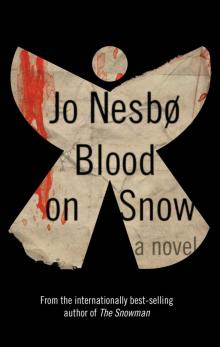 Blood on Snow: A novel
Blood on Snow: A novel Police: A Harry Hole thriller (Oslo Sequence 8)
Police: A Harry Hole thriller (Oslo Sequence 8) Doctor Proctor's Fart Powder: The Great Gold Robbery
Doctor Proctor's Fart Powder: The Great Gold Robbery Bubble in the Bathtub
Bubble in the Bathtub Doctor Proctor's Fart Powder: Time-Travel Bath Bomb
Doctor Proctor's Fart Powder: Time-Travel Bath Bomb The Bat
The Bat Doctor Proctor's Fart Powder: The End of the World. Maybe.
Doctor Proctor's Fart Powder: The End of the World. Maybe. Silent (but Deadly) Night
Silent (but Deadly) Night Who Cut the Cheese?
Who Cut the Cheese? Headhunters
Headhunters The Jealousy Man and Other Stories
The Jealousy Man and Other Stories Harry Hole Mysteries 3-Book Bundle
Harry Hole Mysteries 3-Book Bundle The Thirst
The Thirst The Son
The Son The Redeemer
The Redeemer The Kingdom
The Kingdom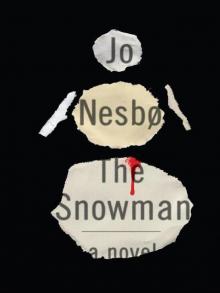 The Snowman
The Snowman The Redbreast
The Redbreast Phantom
Phantom Macbeth
Macbeth The Leopard
The Leopard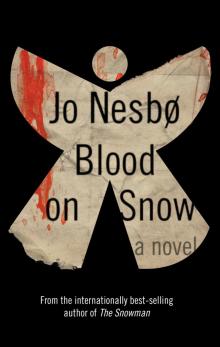 Blood on Snow
Blood on Snow Midnight Sun
Midnight Sun The Redbreast (Harry Hole)
The Redbreast (Harry Hole)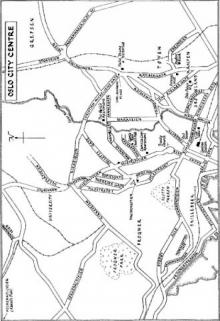 The Devil's Star
The Devil's Star Cockroaches
Cockroaches The Magical Fruit
The Magical Fruit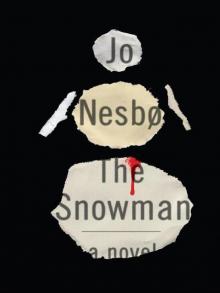 The Snowman: A Harry Hole Novel
The Snowman: A Harry Hole Novel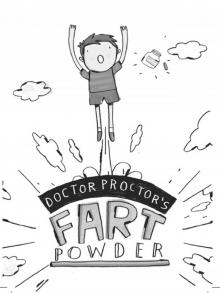 Doctor Proctor's Fart Powder
Doctor Proctor's Fart Powder The Cockroaches
The Cockroaches Knife
Knife Phantom hh-9
Phantom hh-9 The Redbreast hh-3
The Redbreast hh-3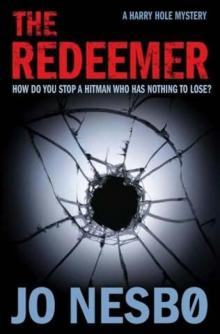 The Redeemer hh-6
The Redeemer hh-6 The Leopard hh-8
The Leopard hh-8 The Leopard: An Inspector Harry Hole Novel
The Leopard: An Inspector Harry Hole Novel The Great Gold Robbery
The Great Gold Robbery Police hh-10
Police hh-10 The End of the World. Maybe
The End of the World. Maybe The Thirst: Harry Hole 11
The Thirst: Harry Hole 11 Nemesis - Harry Hole 02
Nemesis - Harry Hole 02 The Devil's star hh-5
The Devil's star hh-5 Time-Travel Bath Bomb
Time-Travel Bath Bomb